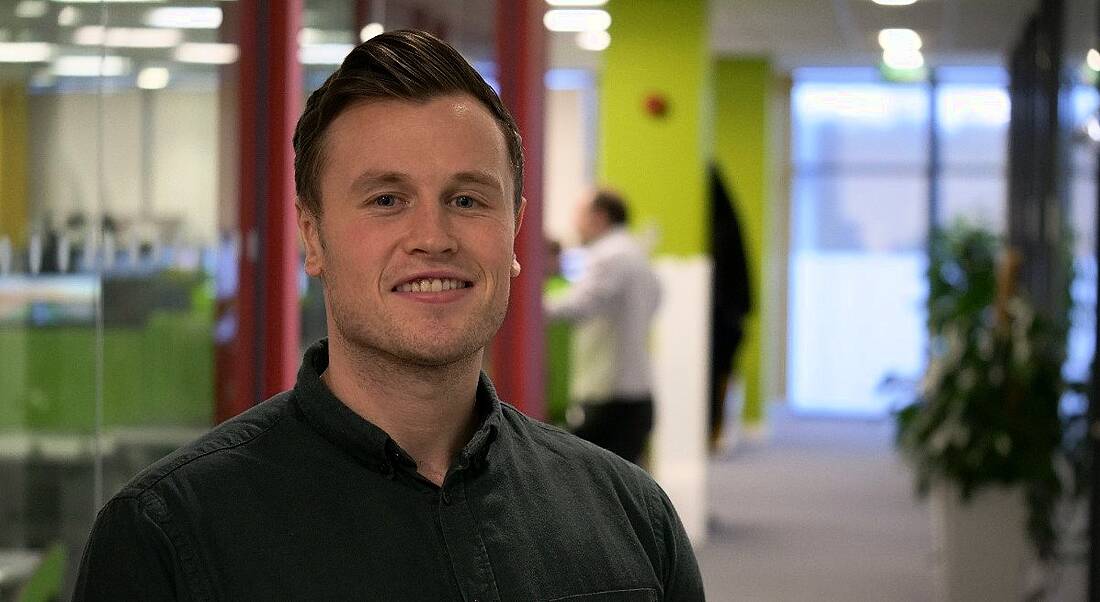Having moved from academia to bioinformatics at GMI, Dr Ray Moran has learned the value of teamwork at a ‘developing company’.
Dr Ray Moran is lead bioinformatician for the laboratory at Genomics Medicine Ireland (GMI). Having moved to the company from the world of academia, he has learned some invaluable lessons along the way, which he explained to Siliconrepublic.com.
Moran discussed his experiences of working at a “developing company” and how his colleagues make “the hectic moments a lot easier to work in”.
If there is such a thing, can you describe a typical day in the job?
Very few days are the same for me as our team works across many areas and projects. Most days involve a mixture of problem-solving with speed and accuracy (or fire-fighting, as we call it), developing analysis pipelines and automations, and analysing data to drive both scientific and business decisions.
What types of project do you work on?
I work on many projects. An example of some projects I am working on are cloud computing usage in the lab, analysing participant genomic data for insights, developing reporting tools for the lab, and developing genomic analysis workflows in a scalable manner.
What skills do you use on a daily basis?
Skills I use regularly include Python, R, Linux, AWS, SQL and bioinformatic tools.
What is the hardest part of your working day?
The pace. It is one of the best parts of my job, but also what makes it hard.
We are in a field that is moving so fast and that makes it exciting to work in. Development is constantly happening and in an efficient manner. We are getting exposed to new technologies and pushing boundaries every week.
Throughout all of this, quality is of the utmost importance. It is imperative we make sure we control the pace of our work environment with an emphasis on quality first and building a solid foundation.
Do you have any productivity tips that help you through the working day?
I came from an academic setting into GMI after my PhD. In the last two years I have learned a lot around productivity.
Here are some tips:
- Use an Eisenhower or ‘important-urgent’ matrix. This is particularly important when there are many projects going on.
- Be very clear on priorities of the company and team. Constantly communicate with your manager – particularly in dynamic environments or growing companies like GMI.
- Don’t paint the Mona Lisa when a Banksy fulfils the goal. Automation is a great example of this. In general, we strive to be as fully automated as possible. However, there are times where we have 95pc automations and to get the last 5pc needed to be completely automated would require more time than it is worth.
- Meetings don’t have to be an hour. Most meetings, if well planned beforehand, can be significantly less than this. Many can even be solved with a quick chat.
- Leverage your colleagues, which is particularly pertinent to fields like bioinformatics (or any multidisciplinary subjects). Learning from someone who has mastered a skill is a lot more efficient, fun and morale-boosting than learning it yourself. Never be afraid to ask for help.
- Communication is key. I cannot iterate enough how important communication with the team is. Leveraging their experience or ideas can often save a lot of time.
When you first started this job, what were you most surprised to learn was important in the role?
I thought a high level of detail in reporting was important in all communication before coming to GMI. My academic setting often demanded that.
However, in GMI I was hired for my knowledge and expertise. I am trusted with the incidental details and it is my job to communicate in an efficient manner, covering all the important points without saturating people with details.
Understanding the level of detail different teams or staff need is crucially important to my role and something I have enjoyed getting to grips with.
How has this role changed as this sector has grown and evolved?
Scalability and stability are becoming ever more important. It is important to develop all our bespoke tools, pipelines and computational infrastructure with this in mind.
In addition to this, we have a key emphasis on data privacy, which is central to all our activities. We are lucky in GMI in that from the start of the company, data privacy has been a fundamental principle. We have an excellent team that are dedicated to this and ensure we are compliant, which is great.
What do you enjoy most about the job?
The teamwork and the goal we are trying to achieve. So many people I work with have something that I can learn from. Many people in other teams have techniques, skills or traits that I can leverage to learn from and get a task done with greater efficiency, particularly the lab team that I am a part of.
There are tough times in any developing company. At these times our team rolls up their sleeves and works in harmony, supporting each other. This makes the hectic moments a lot easier to work in.
Secondly, the goal of what we are trying to achieve is something I am very passionate about. I think genomics and personalised medicine will be the basis for next wave of innovations in medicine. I want to help make this goal a reality, particularly in Ireland.




